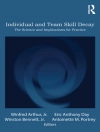This rigorous yet reader-friendly book reviews the state of the science on a broad range of psychological issues commonly encountered in the forensic context. The goal is to help professionals and students differentiate between supported and unsupported psychological techniques–and steer clear of those that may be misleading or legally inadmissible. Leading contributors focus on controversial issues surrounding recovered memories, projective techniques, lie detection, child witnesses, offender rehabilitation, psychopathy, violence risk assessment, and more. With a focus on real-world legal situations, the book offers guidelines for presenting scientific evidence accurately and effectively in courtroom testimony and written reports.
สารบัญ
I. Psychological Science and Its Application in Courts of Law
1. Standards of Legal Admissibility and Their Implications for Psychological Sciences, David L. Faigman and John Monahan
2. Daubert and Psychological Science in Court: Judging Validity from the Bench, Bar, and Jury Box, Bradley D. Mc Auliff and Jennifer L. Groscup
II. Memory and Suggestibility
3. The Scientific Status of ‘Repressed’ and ‘Recovered’ Memories of Sexual Abuse, Deborah Davis and Elizabeth F. Loftus
4. Forensic Hypnosis: The State of the Science, Steven Jay Lynn, Elza Boycheva, Amanda Deming, Scott O. Lilienfeld, and Michael N. Hallquist
5. Expert Testimony Regarding Eyewitness Identification, Brian L. Cutler and Gary L. Wells
6. Techniques and Controversies in the Interrogation of Suspects: The Artful Practice versus the Scientific Study, Allison D. Redlich and Christian A. Meissner
7. Reliability of Child Witnesses’ Reports, Maggie Bruck and Stephen J. Ceci
III . Specific Tests and Techniques
8. The Psychopathy Checklist in the Courtroom: Consensus and Controversies, John F. Edens, Jennifer L. Skeem, and Patrick J. Kennealy
9. Projective Techniques in the Courtroom, James M. Wood, M. Teresa Nezworski, Scott O. Lilienfeld, and Howard N. Garb
10. Psychophysiological Detection of Deception and Guilty Knowledge, William G. Iacono
IV. Forensic Evaluation of Psycholegal Issues
11. Criminal Profiling: Facts, Fictions, and Courtroom Admissibility, Richard N. Kocsis
12. The Science and Pseudoscience of Assessing Psychological Injuries, William J. Koch, Rami Nader, and Michelle Haring
13. Controversies in Child Custody Evaluation, William T. O’Donohue, Kendra Beitz, and Lauren Tolle
14. Controversies in Evaluating Competency to Stand Trial, Norman G. Poythress and Patricia A. Zapf
V. Courtroom Sentencing: Risk and Rehabilitation
15. Violence Risk Assessment: Core Controversies, Kirk Heilbrun, Kevin S. Douglas, and Kento Yasuhara
16. Appropriate Treatment Works, But How?: Rehabilitating General, Psychopathic, and High-Risk Offenders, Jennifer L. Skeem, Devon L. L. Polaschek, and Sarah Manchak
VI. Concluding Thoughts and Future Directions
17. Finding Common Ground between Scientific Psychology and the Law, John P. Petrila
เกี่ยวกับผู้แต่ง
Jennifer L. Skeem, Ph D, is Associate Professor of Psychology and Social Behavior at the University of California, Irvine, where she is also a member of the Mac Arthur Research Network on Mandated Community Treatment, the Center for Psychology and Law, and the Center for Evidence-Based Corrections. Dr. Skeem conducts research on such topics as psychopathic personality disorder, violence risks, and psychiatric treatment outcomes of offenders. She is a recipient of the Saleem Shah Award for Early Career Excellence in Psychology and Law, awarded jointly by the American Psychology-Law Society (Division 41 of the American Psychological Association) and the American Academy of Forensic Psychology.
Kevin S. Douglas, LLB, Ph D, is Associate Professor and Coordinator of the Law and Forensic Psychology Program in the Department of Psychology, Simon Fraser University, Canada. He conducts research on forensic assessment and violence, with a specific focus on violence risk assessment. Dr. Douglas is a Michael Smith Foundation for Health Research Career Scholar and a recipient of the Saleem Shah Award for Early Career Excellence in Psychology and Law.
Scott O. Lilienfeld, Ph D, until his death in 2020, was a Samuel Candler Dobbs Professor of Psychology at Emory University. He was Editor-in-Chief of Clinical Psychological Science and Associate Editor of Archives of Scientific Psychology, and served on the editorial boards of several other journals. Among Dr. Lilienfeld’s principal interests were cognitive biases and their relations to personality and psychopathology, scientific thinking and its application to psychology, the causes and assessment of personality disorders (especially psychopathic and narcissistic personality disorders), psychiatric classification and diagnosis, pseudoscience and clinical psychology, evidence-based clinical practice, and the philosophy of science and psychology. He was a recipient of the James Mc Keen Cattell Award for Distinguished Achievements in Applied Psychological Science from the Association for Psychological Science and served as president of the Society for a Science of Clinical Psychology and the Society for the Scientific Study of Psychopathy.












